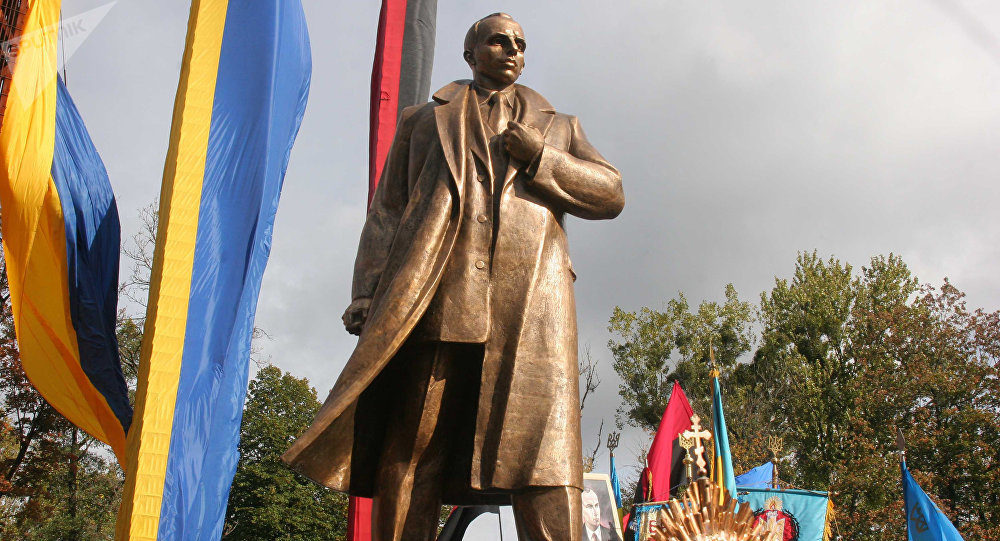Ifølge en rapport fra 2016 lavet af det verdenskendte revisionsfirma, Ernst & Young, topper Ukraine som Europas mest korrupte land, og er et af de mest korrupte lande i verden at dømme ud fra dets borgeres egen vurdering i en omfattende meningsundersøgelse. Det er en trist titel, som landet har været indehaver af hvert år, siden den såkaldte Euromaidan bevægelse væltede Viktor Yanukovich fra præsidentposten med den aktive støtte fra Washington og dets Europæiske allierede.
Man husker at ét af hovedargumenterne for at tvinge den Ukrainske præsident fra embedet i 2014 var hans påståede korruption, med påstande om, at han havde været involveret i en omfattende fejlhåndtering af statsmidler og fordeling af bestikkelser. Alligevel var korruption i magtens øverste lag i Ukraine et fast element før Yanukovich's valg til præsidentembedet i 2010 og er forblevet et fast element siden hans tvungne afgang.
Kommentar: Delvist oversat af Sott.net fra Ukraine, aided by the West, has become a repository of fascism and ultra-nationalism
Se også: Kiev orders 'cleansing' of civilian populations in Donbass on eve of Victory Day
A conflict that has slipped off the radar of the mainstream media continues in eastern Ukraine at significant human and humanitarian cost. In April 2017 the European Commission revealed the extent of the cost paid by those Ukrainians in the eastern part of the country, who have steadfastly refused to recognize the writ of a government that came to power with the active and violent support of avowed neo-Nazis and fascists.
In a conflict in which 9,900 people have been killed and 23,246 injured, the EU Commission report reveals that an estimated 3.8 million people in eastern Ukraine are in need of humanitarian aid. We've learned that "damage to housing and critical civilian infrastructures, particularly water supply and electricity systems is increasing. Conflict affected resident population and internally displaced persons (IDPs) face difficult access to health care and other essential services, socio-economic exclusion, loss of income and livelihood and suffer from psychological distress."
These are the bitter fruits of a conflict that the West helped to bring about with the opportunistic and reckless support for violent demonstrators, many of them neo-Nazis, in a part of the world where the scars of the Second World War remain deep and raw over 70 years on.
Indeed, today, more than anywhere in Europe, including Germany, the past and the present have merged to produce not so much historical amnesia but an outbreak of historical revisionism when it comes to the Nazi invasion and occupation of Ukraine (when it was part of the Soviet Union), and the ensuing atrocities and orgy of murder unleashed by the SS with the participation of Ukrainian auxiliaries.
In an wide-ranging interview with the UK Morning Star newspaper, Petro Symonenko, leader of the Communist Party of Ukraine, points out that "right across Ukraine there is...a war between the ideologists of Hitler and the Nazi collaborators of the OUN, and the anti-fascists, whose leaders have always been Communists." Moreover Symonenko identifies the role of the coup government's Institute of National Memory in 'falsifying history and promoting neonazism (sic) as state ideology."
What he is referring to with regard to the Kiev's Institute of National Memory is a campaign it is engaged in to rewrite the history of the Second World War, while sanctioning the eradication of monuments and statues commemorating the role of the Red Army in liberating Ukraine from the scourge of fascism at enormous human cost. It comes as part of a narrative in which all things Russian are deemed abhorrent and evil, an "eternal enemy and aggressor", regardless of the indisputable ethnic and cultural bonds both countries share, stretching all the way back to the 9th century and the Kievan Rus Federation out of which both Russia and Ukraine emerged.
The idea that a historical figure such as Stepan Bandera, the famed (infamous) Ukrainian nationalist who actively colluded and collaborated with the Nazis during the occupation of Ukraine, is now venerated and lauded as a patriot in anti-Russian parts of the country is surely offensive, when considering the indisputable barbarity that was visited on countless millions throughout the Soviet Union and elsewhere in service to their monstrous creed and ideology.
Yet this is western Ukraine today, a repository of ultra nationalism and fascism, driven by an irrational desire to destroy and substitute an alternative history for actual history.
In supporting the 2014 coup in western Ukraine, and thereby precipitating a civil war, the West created a monster. For not only has the result been civil war, it has plunged relations between Russia and Washington to the lowest point since the Cuban Missile Crisis of 1962, when the world came the closest it ever has to nuclear Armageddon.
Today, three years after the coup in Kiev, there are thousands of NATO troops on Russia's border, along with aircraft and a missile defense shield in Romania. Cynics among us may be tempted to speculate that this was part of the script all along, given Russia's recovery and emergence as a strategic counterweight to Western hegemony in recent years. But whatever the motives the catastrophic outcome cannot be denied.
It is something to ponder that whereas during the Second World War Russia and the West were united in a common struggle to defeat fascism, in the second decade of the 21st century the West is supporting a country that, though not governed by fascists, is undeniably infested by a recrudescence of fascism.
"As crimes pile up," Brecht reminds us, "they become invisible."




Læserkommentarer
dig vores Nyhedsbrev